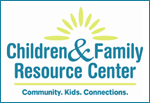What is Early Child Development? |
|
|
|
Early childhood is the most rapid period of development in a human life. Although individual children develop at their own pace, all children progress through an identifiable sequence of physical, cognitive, and emotional growth and change. The Early Child Development (ECD) approach is based on the proven fact that young children respond best when caregivers use specific techniques designed to encourage and stimulate progress to the next level of development. The ultimate goal of Early Child Development (ECD) programs is to improve young children's capacity to develop and learn. A child who is ready for school has a combination of positive characteristics: he or she is socially and emotionally healthy, confident, and friendly; has good peer relationships; tackles challenging tasks and persists with them; has good language skills and communicates well; and listens to instructions and is attentive. The positive effects that ECD programs have can change the development trajectory of children by the time they enter school. A child who is ready for school has less chances of repeating a grade, being placed in special education, or being a school drop-out.
|
Benefits of Early Child Development Programs |
||
|
|
||
|
|
||
|
A vast body of research has demonstrated that Early Child Development (ECD) programs benefit children, families, and communities. |
||
- Higher intelligence scores
- Higher and timelier school enrollment
- Less grade repetition and lower dropout rates
- Higher school completion rates
- Improved nutrition and health status
- Improved social and emotional behavior
- Improved parent-child relationship
- Increased earning potential and economic self-sufficiency as an adult
- Increased female labor force participation
Kids who participate in quality preschool programs are more
likely to start school ready to learn.
For more information about ECD please go to: Wake County Smart Start






